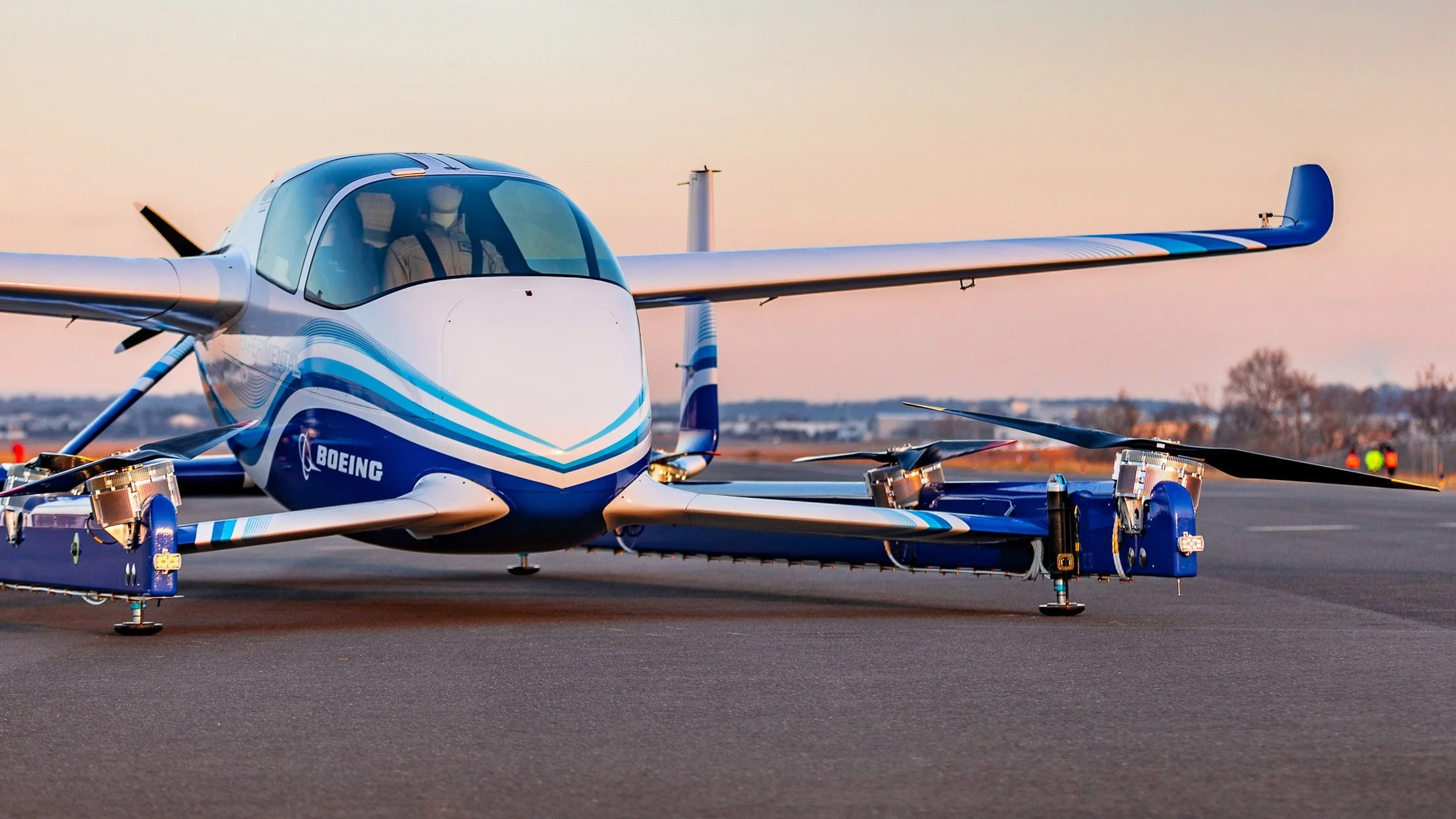Late last month Boeing successfully tested their first prototype for an electric flying car. The company has committed to developing a market-ready product, after going from design to working prototype in just under a year.
The test flight was done autonomously so as to not risk injuring any occupants in the case of a crash and the test was short, limited to 60 seconds. But it’s just the first step of many for Boeing to bring to market, a vehicle that is just as capable on the road as it is above it.

Boeing’s Prototype flying car Source: www.businessinsider.com.au
Boeing is not alone in the flying car market with competition heating up from their big rival Airbus along with Uber Elevate. The goal of Boeing and Airbus is to create fully autonomous land and air vehicles that can be controlled by the touch of a button and use the free space above us to avoid congestion.
Airbus made a similar test flight this time last year but relatively little progress has been announced about the project or its status since then.
Uber Elevate has stated that they plan to launch a shared air transportation service in 2023 using eVTOLs (electric vertical take-off and landing vehicles). Uber Elevate has announced that the first markets will be Dallas and L.A plus a third international choice still to be announced, with Australia being on the shortlist.

The Airbus eVTOL Source:www.airbus-sv.com
Working to beat congestion and cut costs for delivery to the home, Amazon has been developing their own eVTOLs, only they’ve got a much smaller payload in mind. Aiming to cut out much of the work done by delivery drivers, Amazon have developed drones that can pick up and drop off packages up to 5 kilograms. The use of delivery drones hasn’t been approved for wide-scale rollout yet, but during the trial runs Amazon were achieving 30 minute delivery times from order.
The Amazon trial was completed successfully in 2016 leaving the question what has happened to this technology?
The answer is simple, regulation. The company hasn’t been able to get approval for their drones to autonomously fly through the sky delivering packages at will. Similar issues will present themselves with other flying technology, as what goes up can only come down, and hard!

Amazon’s Delivery Drone Source: www.time.com
In an urban area, the risks are high so it’s unlikely that bureaucracy will move fast, unlike the industrial designers pushing these new technologies.
In the not too distant future it is easy to envision the vast open space of our skies becoming more utilised. As progress goes, the biggest hurdles these developments face are no longer technological but political and logistical.
If you have industrial aspirations that are driving you, then give us a call at Hone Product Design Melbourne on (03) 9939 8880.